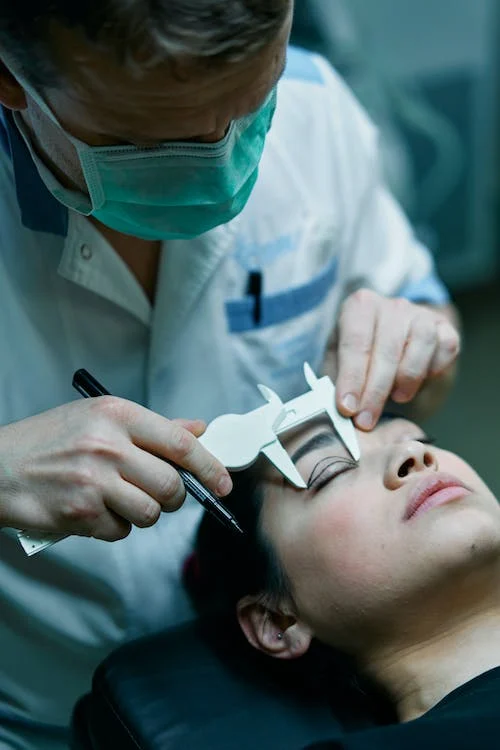Individuals seeking facial surgery may be driven by a desire to reconstruct the face following an accident or disease or to alter a feature that has been present since birth. Facial plastic and reconstructive surgery reconfigure structures in the head and neck, most commonly the nose, ears, chin, cheeks, and neckline. Alternatively, those who may wish to reverse the signs of aging, smooth out contour inconsistencies, or make the features of the face show up in proportion to one another.
Facial plastic surgery is a specialized artistic area that necessitates creative vision and technical prowess. In facial reconstruction surgery, function and form are both equally essential and entitled to equal weight.
Consideration of facial plastic surgery should begin with a consultation with a surgeon to go over objectives, alternatives, and potential risks and advantages of various procedures. Your surgery will be arranged once you and the surgeon have agreed on a course of treatment. Depending on your circumstances, you may undergo surgery as an inpatient or an outpatient. The surgery team will provide you with follow-up care.
Things to know before going for a facial surgery
Changes like dietary restrictions and lifestyle adjustments will occur after facial cosmetic surgery. Some people find it difficult and suffocating to adjust to the changes. They yearn for the life they once had. In extreme cases, people may even experience depressive symptoms as a result of this. So, it would help if you were very well ready for the procedure.
Not everyone with the same problem can be treated the same way. What works for one person may not work for another. Age, the type and severity of the skin damage, and other health issues (like diabetes or heart issues that may interfere with the surgery or cause complications) should all be thoroughly discussed with the surgeon before the procedure. Do not simply follow what the rest of the world is doing. Choose the best surgery for you.
Facial plastic surgery is generally divided into cosmetic and reconstructive procedures as a clinical specialty, though many surgeons have general practices that encompass both. The majority of facial cosmetic surgeons in the United States specialize in cosmetic procedures (such as rhinoplasty, browlifts, blepharoplasty, and facelifts) and the reconstruction of facial defects following skin cancer removal. Injectable fillers, neural modulators, lasers, and other skin-rejuvenation tools are also frequently used by facial plastic surgeons. Facial plastic surgeons typically work in tertiary settings like university hospitals, focusing on skull base, craniomaxillofacial trauma, or microvascular reconstruction.
Reconstructive Surgery
Functional impairments brought on by burns, traumatic injuries such as facial bone fractures and breaks, genetic abnormalities such as cleft palates or cleft lips, developmental anomalies, infection and disorder, cancer, developmental abnormalities, and hereditary abnormalities are all treated with reconstructive plastic surgery.
Facial reconstruction plastic surgery attempts to restore both form and function. Tumor removal, laceration repair, maxillofacial surgery, scar revision, hand surgery, and breast reduction are the most common reconstructive procedures. According to the American Society of Plastic Surgeons, the number of reconstructive breast reductions performed on women decreased by 4% in 2018 compared to the previous year.
When no local tissue is available, plastic surgeons use microsurgery to transfer tissue to cover a defect. Suturing veins and arteries as tiny as 1 to 2 millimeters in diameter allows gratis flaps of skin, muscle, bone, fat, or a combination to be extracted from the body, transferred to another location, and rejoined in a blood supply.
Conclusion
To summarize, facial plastic surgery is an essential field of surgery that can make lifesaving and life-changing changes in the lives of patients and society. It is a constantly changing field. So, if you are planning surgery yourself, you must take the step after proper research and planning.

